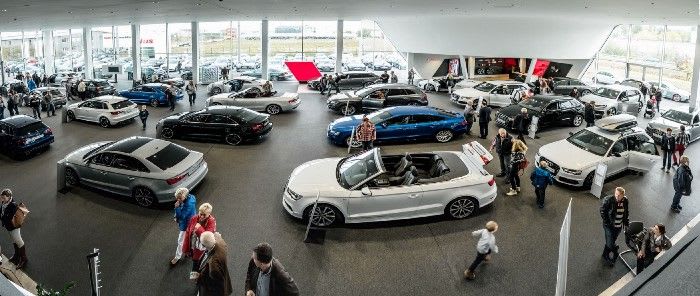Will We Actually Stop Buying Cars?

We’re all hearing and now talking about the inevitability of us ditching car ownership in the future. It’s coming from all sides.
“Uber will take over the world (as long as they can get out of their own way)”.
“No one will own a car anymore”.
“Millennials don’t want to own cars. They’re only into getting to the experience”.
“I use my car 4% of the time”.
“We are about to reach ‘Peak Car Ownership’”.
These are some of the “truths” being widely repeated in AV discussions and amongst tech circles. They make for a great vision, almost Utopian. A whole new world of greater efficiency, autonomous carpool sharing networks, being able to roam the streets by foot or bike, and not worrying about congestion and the commute into work.

But of course, it’s not really that simple or streamlined.
Behind these visions of simplified transport lie the fact that owning a car today is a pain and expensive. It costs a small fortune to buy a car, pay for registration, and subscribe to an expensive insurance policy. You have to find parking for the car at the end of every trip; you take it to the garage from time to time for service and maintenance; if you get into a collision, it’s a hassle, and above all, you need to drive the car, which is stressful and tiring.
Fast forward to the autonomous electric vehicles future. The price of a car will go down dramatically once they can have simple electric engines and be made from light materials — given that there are no more collisions. In fact, these cars may even be free in the future, sponsored by ads you see on your ride or the data the car collects as it drives. Insurance will also get much cheaper too. You don’t have to worry about parking anymore or take it to the garage, and finally, you don’t have to drive. In short, heaven, right?
So why would you want to buy a car, now that it is close to so cheap and hassle-free? Well, to take a page from history, there is no precedent in which the cost of a product plummeted and the hassle of owning it disappeared, and as a result the demand for the product went down. In fact, in every other example we can think of, demand for past products exploded.
“But Millennials don’t buy cars” you may say. And while the jury is still out on that — automotive sales globally have actually gone up in recent years — I’d argue that proves very little. You could argue similarly that Millennials don’t want to own a house, given the narrative of enjoying “experiences” over things. The truth, however, is that they do not buy houses because older generations and the general housing crisis pushed housing prices to a point where it is beyond their reach. So they want to own houses, but simply can’t afford them.
You might then argue, “Well but I’m only using my car 4% of the time — that’s highly inefficient”. It could be but here are a few other things you only use roughly 4% of your time — your toilet, your shower, your stove oven, your dining room, and your living room. Do you still want those things and spaces available to you? If you’re really rich, you might also own a private jet, which you’re using much less than 4% of the time. In effect, dramatically reducing the cost and pain of owning a car is similar to making all of us very rich when it comes to transportation.
Get me a $10,000 autonomous electric vehicle and you bet I’ll buy one. In fact, I will buy five and give each of my kids one. Why not? I don’t have to worry about parking anymore and I still don’t want to send my daughter in an Uber Pool to her ballet lesson.
Yes, ridesharing networks are extremely convenient and will continue to grow in the future. Ridesharing is a major innovation and has gained a sizable role in society. But the notion that within a generation we will move from 99% of road trips done with privately owned vehicles to 99% trips done on ridesharing networks — autonomous or otherwise — is overly simplistic and unrealistic given our infrastructures and past human behavior.
Actually, from the perspective of the ridesharing passenger, very little will change will occur with the introduction of autonomous vehicles. There will be a price drop, undoubtedly, even if the supply side changes. This will ba partly due to the removal of the driver and partly due to electrification and reduction in insurance cost. There will also be no one to talk to during the ride other than Siri. But otherwise, the basic experience will remain as it is now: hailing, riding, arriving.
As such, we could argue that the impact autonomous ridesharing networks will have on car ownership could’ve been manifested already to some extent. While that effect undoubtedly exists in places like San Francisco, it is likely due more to the skyrocketing cost and huge hassle of car parking and ownership within the city than to anything else. Where cars are still needed — in rural or sprawling areas — the affordability of autonomous vehicles and ample parking space will likely encourage more buying, not less. And in places like NYC, other solutions like the subway will likely continue to move far more people than Uber and Lyft worldwide. Especially when you account for traffic.
And this is what I’ll write about later this week. Traffic.

